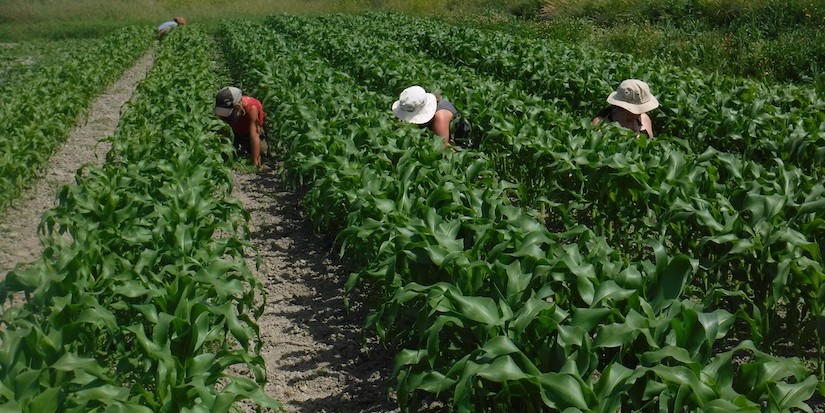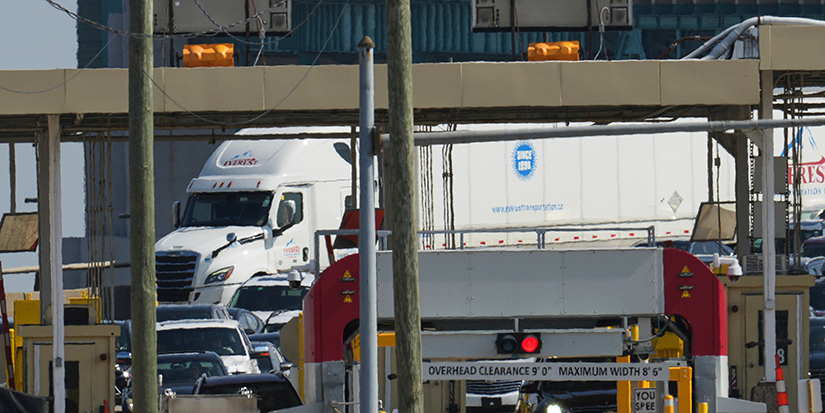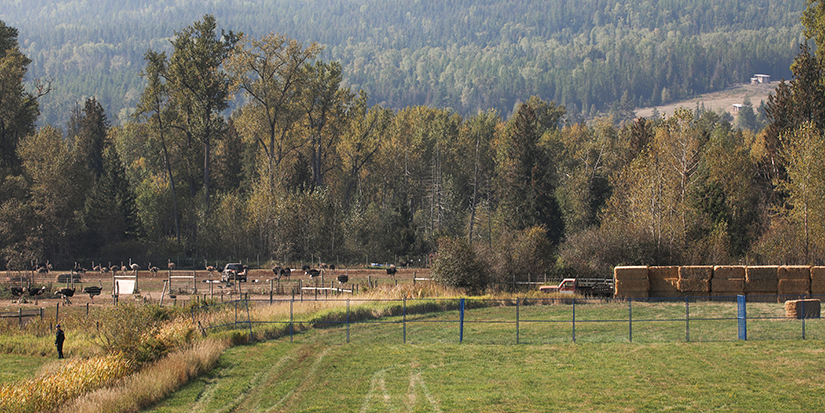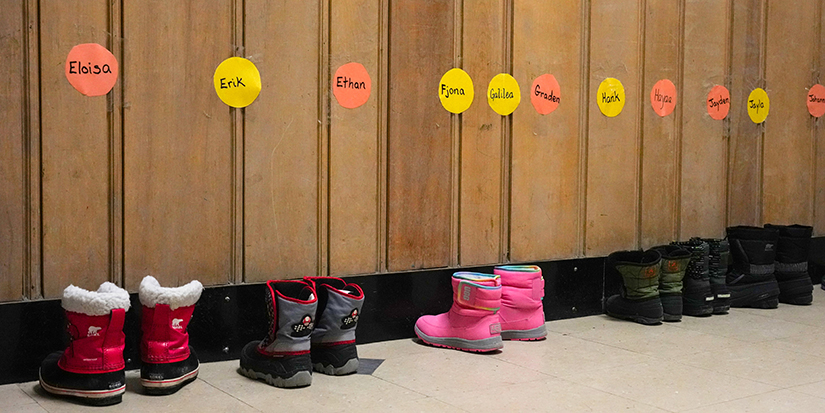Latest News
Partners pour hearts into Sweet Digz

By Hannah Scott, Local Journalism Initiative reporter
Published 4:16 PDT, Mon August 17, 2020
Last Updated: 2:13 PDT, Wed May 12, 2021
—
Richmond’s mineral-rich clay soil is ideal for farming says Kimi Hendess. And she would know: Hendess and her partner Kareno Hawbolt own Sweet Digz Farm, where they grow over 40 different crops on around three acres of land.
Through Sweet Digz’s community-supported agriculture model, people can protect local farmland and support food security. Each year, people can become members and buy into the harvest in advance of the season.
The program is one of only a few in Richmond, and Hendess and Hawbolt endeavour to do most of the work themselves rather than hiring a large staff and only concentrating on the management aspects.
“We’ve always chosen to keep it small because we still want to be doing the farming (ourselves),” says Hendess. “Our demand definitely exceeds our supply.”
This year Sweet Digz had to hire a delivery person in addition to the part-time staff who help them over the summer. They also have volunteers who help with deliveries and harvesting. Staying at a small scale means longer working hours for Hawbolt and Hendess, who take just six weeks off annually, in December and January, to decompress.
“We’re lucky enough to have a family cabin that we can go to,” says Hendess. “We try to just go offline—we have to recover from complete burnout.”
After a break, they spend the rest of the winter months doing business development and planning for the season ahead. While field work takes precedence, there are also other elements of the business that require attention year-round.
“We had to learn to only do what’s necessary,” she says. “That’s how we’re able to balance the field work with the business side. A lot of people wouldn’t call it balance—we don’t really sleep and have a life. That’s farming. If you talk to any farmer, the season is just ‘go go go’.”
Despite the hard work, Hendess says the benefits far outweigh the challenges. They receive a lot of love and appreciation from their customers, who are glad to have access to local fresh produce. But like many industries, the COVID-19 pandemic brought about several changes for Sweet Digz, including the cancellation of their annual market. Hendess notes that the isolation and quarantine most people were going through didn’t occur for them—as farmers, they’re used to being busy with little time for socializing.
“We’ve realized during this time how much of a privilege it is to have this work,” says Hendess. “We have this land we lease, and that we’re able to work the earth, and this work is meaningful to us and people appreciate it.”
Hendess grew up in North Delta, and Hawbolt in Richmond. While Hawbolt has been farming for 20 years, Hendess found her way to the profession through an interest in landscaping and climate change. They found their current location in 2013 and have been on a year-to-year lease ever since.
Hendess recognizes the challenges faced by new farmers, particularly the lack of a trades or apprenticeship program. This creates a huge risk for new farmers, who may not know the ins and outs of the trade. But she and Hawbolt were mentored by a local generational farmer.
“There’s a generation of farmers in Richmond who are aging out and looking for people to come in behind them,” says Hendess. “It’s about relationships and learning from people.”
Hendess says new farmers want to be financially viable right away. But by starting small, having a long-term growth plan, and being comfortable with modest growth, she says new farmers will have a greater chance at success. And other elements like marketing and business management can add to the challenge.
“Some people bite off way too much in terms of expecting the business side to grow faster,” says Hendess. “We call it ‘earth pace.’ Farming has to happen at earth pace because we may think that we’re making decisions and we want things to go a certain way, but the earth is in charge.”
She and Hawbolt champion food accessibility, and try to keep their prices low so people can stock up on grocery needs from local farmers. They also run a ‘share it forward’ program where customers can donate to a fund that is used to distribute vegetables to those who would not otherwise be able to afford them. Of the 40 crops they grow, Hendess says carrots are among her favourites—although they can be challenging.
“Often we say we aren’t going to grow onions,” says Hendess. “They’re so cheap in the grocery store, but they’re so much work (to grow). Organic agriculture is so much about hand weeding, and anything that’s hard to weed is such a big challenge.”
But customers love onions, and Hendess and Hawbolt like to provide variety. This also contributes to their resilience plan.
“If something happens to one crop, then we have all these other crops,” says Hendess. “Something else will work out anyway, even if one crop doesn’t.”
Potatoes are another challenge, particularly because hand digging is labour-intensive, but a harvest beloved by customers. Hendess says she and Hawbolt eat a lot of potatoes throughout the winter, using them as a source of protein.
In addition to the delicious fresh food they eat regularly, Hendess says the time spent in nature has an indescribable quality she loves.
“It’s just that quiet joy really, those moments when the sun is setting or it’s the early morning,” says Hendess. “You see these little magical things being in nature and working in nature all the time. That’s one of the things that makes it all worthwhile.”































